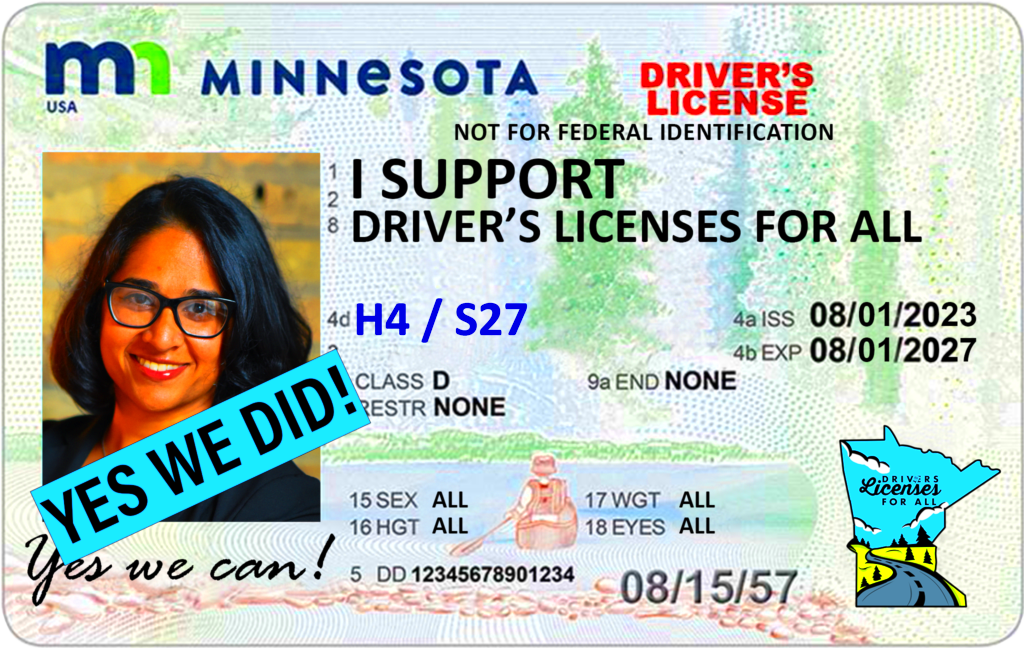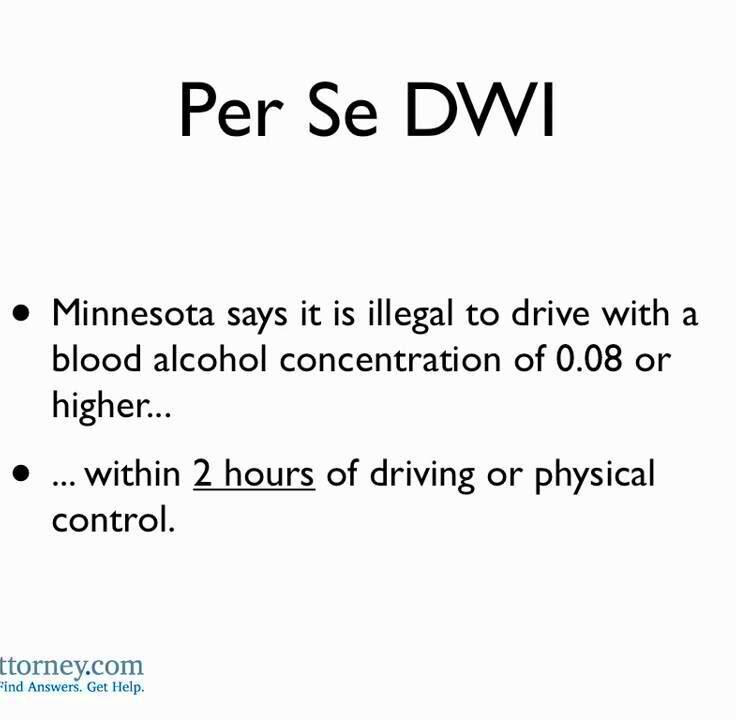Minnesota’s New DWI Laws in 2024 and What They Mean for Drivers
Driving While Intoxicated (DWI) laws in Minnesota are designed to keep roads safe for everyone. These laws regulate how much alcohol you can have in your system while driving and outline penalties for those who violate them. In Minnesota, a DWI charge can arise from various situations, including being caught driving under the influence of alcohol, drugs, or a combination of both. Knowing these laws is crucial for every driver.
The state’s legal limit for Blood Alcohol Concentration (BAC) is 0.08%. However, drivers can be charged with DWI at lower levels if their driving is impaired. Minnesota also has strict laws against underage drinking and driving, where any detectable amount of alcohol can lead to penalties.
It’s essential to understand the implications of a DWI charge. Not only does it come with legal consequences, but it can also impact your personal and professional life.
Changes in DWI Penalties for 2024

As of 2024, Minnesota has introduced new penalties for DWI offenses aimed at reducing impaired driving and promoting safer roadways. These changes reflect a stricter approach to deter repeat offenders and enhance public safety. Here’s what you need to know:
- Increased Fines: Fines for DWI offenses have been raised significantly. First-time offenders can expect to pay between $1,000 and $3,000, depending on the severity of the offense.
- Mandatory Jail Time: A minimum jail sentence has been established for certain DWI offenses. First-time offenders might face at least 48 hours, while repeat offenders face more extended sentences.
- Longer License Suspensions: License suspension periods have been extended. First-time offenders could lose their driving privileges for up to 90 days, while repeat offenders face longer suspensions.
- Enhanced Ignition Interlock Requirements: Offenders may be required to install ignition interlock devices in their vehicles, even for first-time offenses.
These new penalties underscore the importance of responsible driving and highlight the serious consequences of impaired driving in Minnesota.
Understanding Blood Alcohol Concentration Limits

Blood Alcohol Concentration (BAC) is a critical factor in DWI laws. It measures the amount of alcohol in your bloodstream and is expressed as a percentage. Understanding these limits is essential for any driver. Here are the key points:
- Legal Limits: In Minnesota, the legal BAC limit for drivers aged 21 and older is 0.08%. For commercial drivers, the limit is lower, at 0.04%. For drivers under 21, any detectable alcohol can lead to DWI charges.
- Factors Affecting BAC: Your BAC can be influenced by several factors, including:
- Your weight
- The number of drinks consumed
- Time spent drinking
- Food intake
- Testing Methods: Law enforcement uses breathalyzers, blood tests, and urine tests to measure BAC levels. Refusing to take a test can lead to severe penalties, including license suspension.
Being aware of these limits and the factors that influence BAC can help you make informed choices about drinking and driving. Remember, it’s always safer to avoid driving after consuming alcohol.
Impact of Repeat Offenses on Drivers
Getting a DWI is serious, but repeat offenses can lead to even harsher consequences. Minnesota’s laws reflect this seriousness, with penalties escalating for those who continue to drive while impaired. Understanding how repeat offenses impact drivers can help prevent future mistakes.
For a second or subsequent DWI offense, you can expect the following:
- Increased Fines: The fines grow significantly with each offense. For example, second offenses can range from $3,000 to $6,000.
- Longer Jail Sentences: Repeat offenders face mandatory jail time. A second DWI can lead to 30 days to a year in jail, while a third offense might require more extended incarceration.
- Extended License Revocation: Each subsequent offense results in longer license suspension periods. A second offense may lead to a one-year suspension, while a third can result in a two-year suspension.
- Felony Charges: After a fourth DWI offense, you could be charged with a felony, leading to even steeper fines and longer imprisonment.
These penalties aim to deter drivers from making poor choices and emphasize the importance of seeking alternatives, such as ridesharing or public transportation, if you’ve been drinking.
Importance of Ignition Interlock Devices
Ignition Interlock Devices (IIDs) play a crucial role in preventing drunk driving among offenders. These devices are installed in vehicles to ensure that the driver is sober before starting the engine. Understanding their importance can help reinforce responsible driving habits.
Here’s why IIDs are significant:
- Preventing Drunk Driving: IIDs require drivers to provide a breath sample. If alcohol is detected, the car will not start. This feature directly reduces the chances of repeat offenses.
- Monitoring Compliance: These devices record data on the driver’s behavior, including failed breath tests and attempts to tamper with the device. This information is shared with authorities, ensuring accountability.
- Shorter License Suspensions: Installing an IID can often allow offenders to regain their driving privileges sooner than if they were to wait out their suspension.
- Encouraging Responsible Behavior: Knowing that they must pass a breath test before driving encourages individuals to make smarter choices regarding alcohol consumption.
Ultimately, Ignition Interlock Devices serve as a crucial tool in promoting safer driving and reducing the risk of accidents caused by impaired drivers.
Education and Treatment Programs for Offenders
Education and treatment programs are essential components in addressing the root causes of DWI offenses. Minnesota recognizes that simply punishing offenders is not enough; providing resources for rehabilitation is vital for long-term change.
Here’s what these programs typically involve:
- Substance Abuse Education: Programs educate offenders about the effects of alcohol and drugs on driving. Understanding the risks can lead to better decision-making in the future.
- Counseling Services: Many offenders participate in counseling sessions that help address underlying issues related to substance abuse. This support can be critical for long-term recovery.
- Behavioral Therapy: Some programs offer therapy that focuses on changing behavior patterns and reducing the likelihood of future offenses.
- Support Groups: Many offenders benefit from joining support groups where they can share experiences and learn from others facing similar challenges.
Participation in these programs can often lead to reduced penalties and improved outcomes for offenders. By addressing the issue holistically, Minnesota aims to promote safer driving and reduce DWI incidents.
How These Laws Affect New Drivers
For new drivers, understanding DWI laws is crucial to ensuring safe driving habits from the start. Minnesota’s laws regarding driving while intoxicated are particularly important for those who are just beginning their driving journey. Knowing the rules can help prevent unfortunate mistakes and establish a foundation for responsible driving.
New drivers face unique challenges when it comes to DWI laws:
- Strict Zero Tolerance: Minnesota has a zero-tolerance policy for drivers under 21. Any detectable amount of alcohol can lead to severe penalties, including fines and license suspension.
- Learning Curve: New drivers are still getting accustomed to the responsibilities of driving. Understanding the dangers of impaired driving is crucial for avoiding accidents.
- Insurance Implications: A DWI charge can significantly impact insurance rates. New drivers may face higher premiums or difficulty obtaining coverage after a DWI offense.
- Education Programs: New drivers may be required to complete alcohol education programs if they are caught driving under the influence, further emphasizing the importance of understanding the laws.
By being aware of these laws and their implications, new drivers can develop safer habits and avoid the pitfalls associated with impaired driving.
FAQs about Minnesota DWI Laws in 2024
As DWI laws continue to evolve, many people have questions about how these changes impact them. Here are some frequently asked questions about Minnesota DWI laws in 2024:
- What is the legal BAC limit for drivers in Minnesota?
The legal BAC limit is 0.08% for most drivers. For commercial drivers, it’s 0.04%, and for those under 21, any detectable amount can lead to charges. - What happens if I refuse to take a breath test?
Refusing a breath test can lead to immediate penalties, including license suspension and possible fines. - Are there differences in penalties for first-time versus repeat offenders?
Yes, penalties escalate significantly for repeat offenders, including higher fines and longer license suspensions. - Can I get my license back after a DWI?
Yes, you can apply for reinstatement after serving your suspension period, but additional conditions, such as installing an IID, may apply. - What resources are available for offenders?
Minnesota offers various education and treatment programs to help offenders understand the risks of impaired driving and support recovery.
Staying informed about these questions can help drivers navigate the complexities of DWI laws and maintain safer driving habits.
Conclusion on Minnesota DWI Laws and Their Impact
In conclusion, Minnesota’s DWI laws reflect a commitment to ensuring road safety for all drivers. With stringent penalties and new regulations introduced in 2024, these laws aim to deter impaired driving and promote responsible choices behind the wheel. The impact of these laws extends beyond penalties; they encourage education, awareness, and rehabilitation for offenders.
By understanding the consequences of DWI offenses, especially for new drivers, individuals can make informed decisions about alcohol consumption and driving. Resources like Ignition Interlock Devices and education programs play vital roles in reducing repeat offenses and supporting recovery.
Ultimately, the goal is to foster a culture of safe driving in Minnesota, where everyone can enjoy the roads without the risk of impaired drivers. Staying informed and proactive about DWI laws can lead to safer communities and responsible driving habits.


